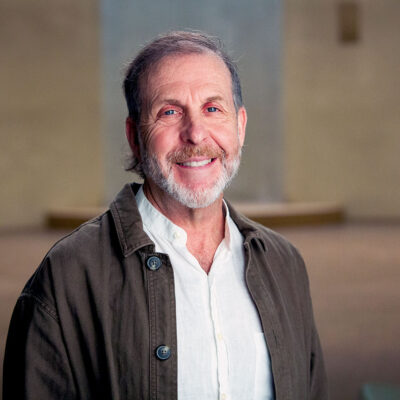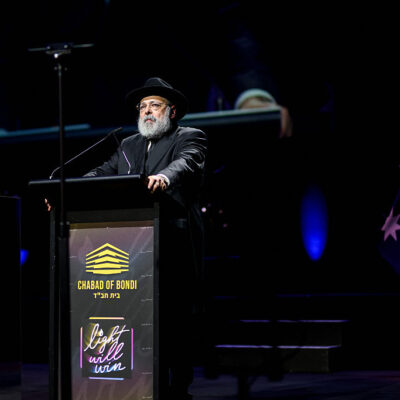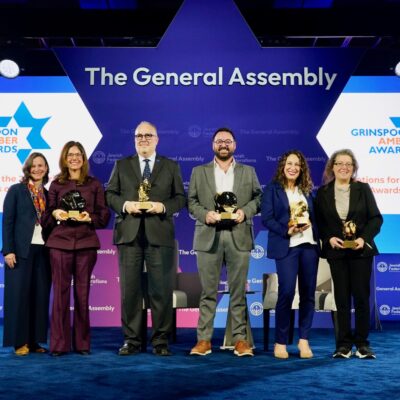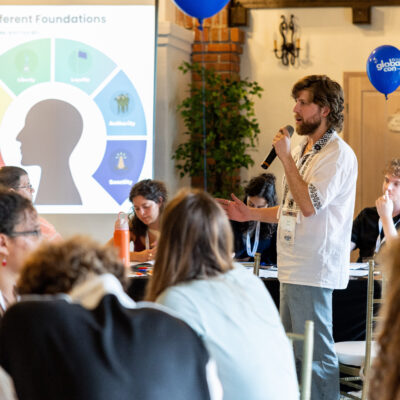Opinion
THE MORE YOU KNOW
How donors can prevent their university gifts from funding antisemitism
As antisemitism rises on American campuses, concerned donors are increasingly asking how to ensure their gifts to universities don’t end up supporting discrimination against Jews. At StandWithUs, we routinely hear from philanthropists who want to give responsibly; they want their gifts to reflect their values and protect Jewish students.
The good news is, they can — but doing so requires specificity, oversight and a willingness to push back against administrative resistance.

Nuthawut/Adobe Stock
Universities regularly accept donor conditions without blinking. From naming rights to curriculum direction, donor intent shapes academia in powerful ways. Professorships are frequently endowed with stipulations about their academic focus or the qualifications of faculty — areas that touch directly on academic freedom. These conditions are standard and rarely disputed.
Even so, some of the individuals who approach us for help come with personal accounts of universities refusing to include explicit antisemitism protections in donor agreements. University officials cite concerns about free speech and academic freedom, but that argument doesn’t hold water. In 2022, for instance, the U.S. Department of Education’s Office for Civil Rights entered into a resolution agreement with the University of Vermont requiring it to adopt language defining antisemitism and to commit to addressing it effectively. Enforcing anti-discrimination measures — particularly against antisemitism — can be done without violating constitutional rights.
Donors also have tools to assert their values. Structured endowments should include incremental disbursement schedules and enforceable oversight provisions. Rather than handing over the full gift at once, donors can release funds over time, ensuring the university remains accountable. Clawback clauses, which allow donors to reclaim or redirect funds if the university violates agreed-upon terms (such as tolerating antisemitic conduct), are also essential. These provisions aren’t unusual — they’re responsible.
Beyond preventing harm, donors can also affirmatively support Jewish life and Israeli collaboration through targeted gifts. At Rice University, for instance, a $1 million endowment funds scholarships for non-U.S. veterans, with a preference for those who understand the mission and values of the Israel Defense Forces. The University of Florida supports students pursuing careers in Jewish communal service through scholarships under its Bud Shorstein Center for Jewish Studies. Clemson University recently partnered with Hebrew University and Sapir College in Israel on joint research initiatives in agriculture and environmental science — showing how international collaboration can align with institutional and donor goals.
To replicate these successes, donors must insist on detailed endowment language: clearly stated purposes, eligibility criteria, ongoing monitoring and reversion clauses. These aren’t legal technicalities — they’re practical safeguards to ensure long-term alignment with donor intent.
One recent case illustrates the stakes: A prominent Jewish donor endowed a professorship in Jewish and Israeli studies, only to discover that the appointed professor publicly supported boycotts of Israel. Thanks to precise contractual language and donor oversight, the university was persuaded to diversify the professor’s teaching responsibilities, restoring some balance. This would not have happened without enforceable terms.
In today’s climate, good intentions are not enough. Universities must stop pretending that accepting antisemitism protections is somehow exceptional or controversial. It isn’t. Donors must be prepared to walk away if institutions won’t respect their values.
Philanthropy has power. With clarity, persistence and legal foresight, donors can ensure their contributions protect Jewish students and reflect the values they stand for.
Yael Lerman is the legal director at StandWithUs.
Jonathan Rotter practices with the class action law firm Glancy Prongay & Murray, and represents StandWithUs pro bono in a variety of matters.

 Add EJP on Google
Add EJP on Google









